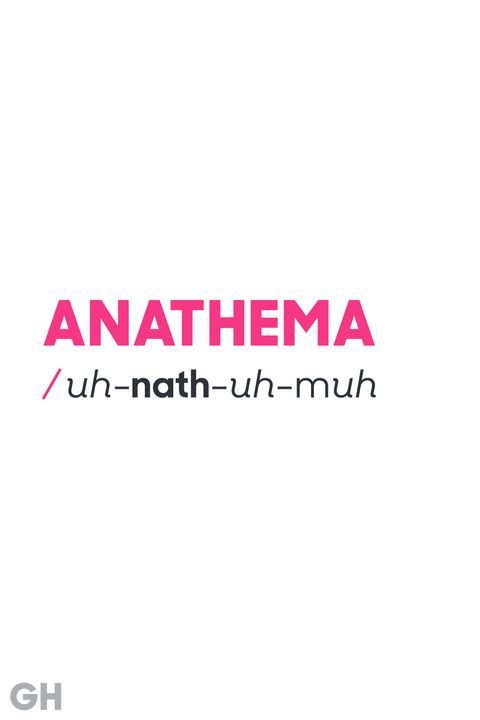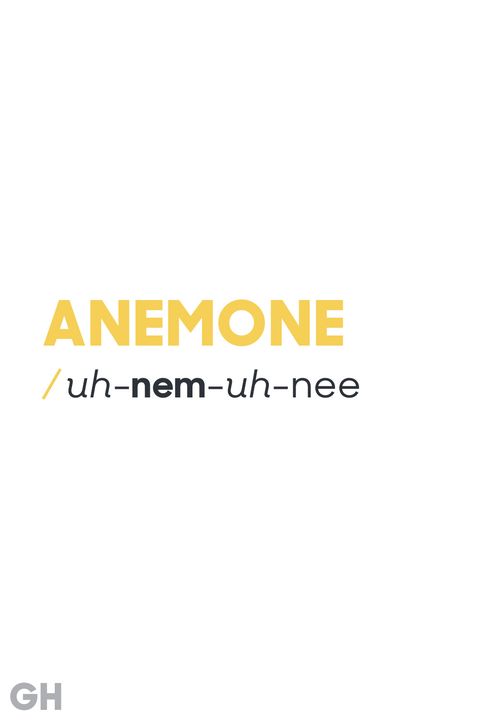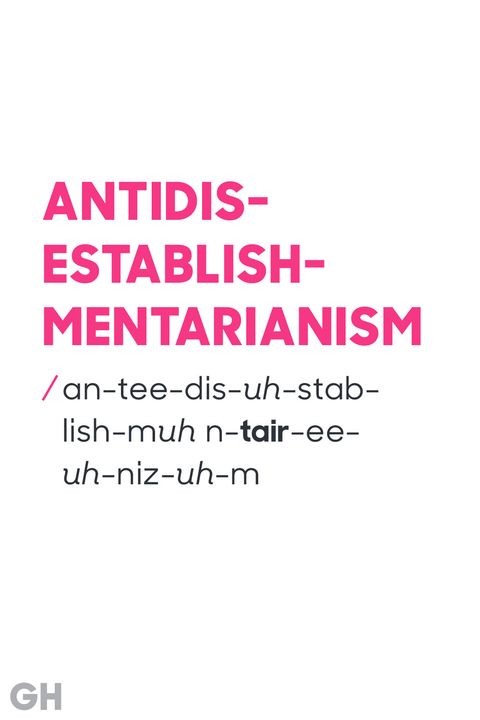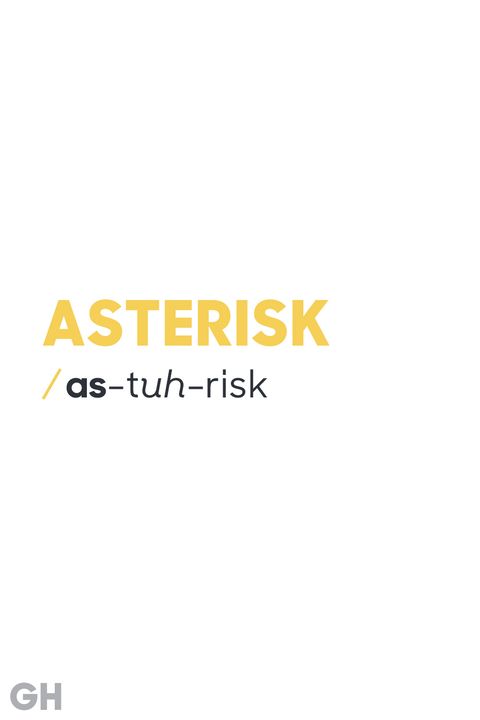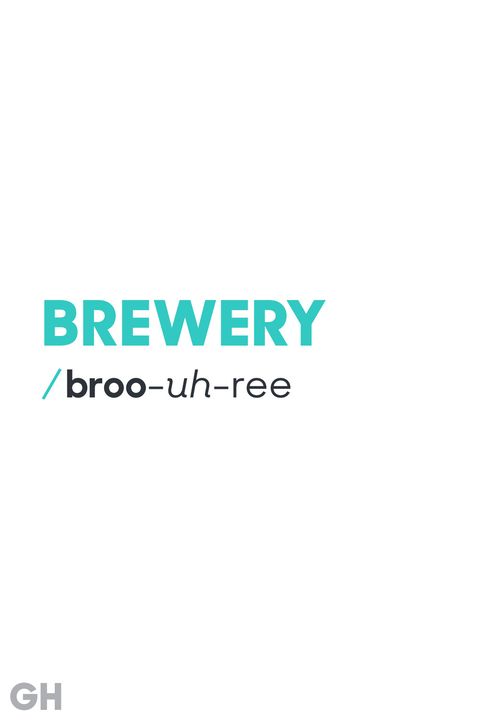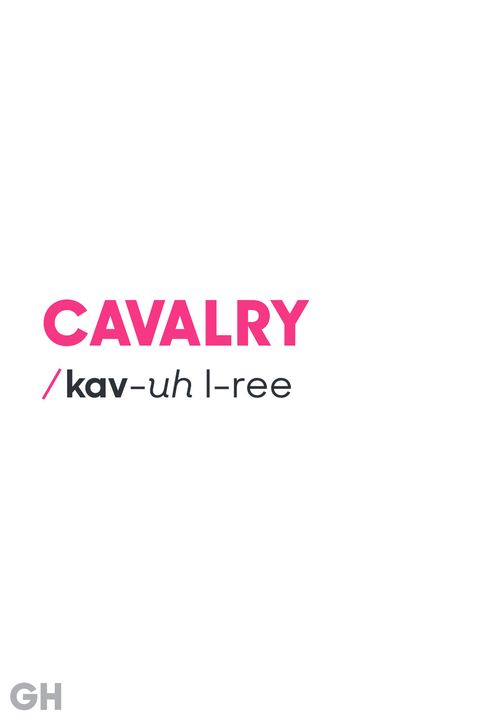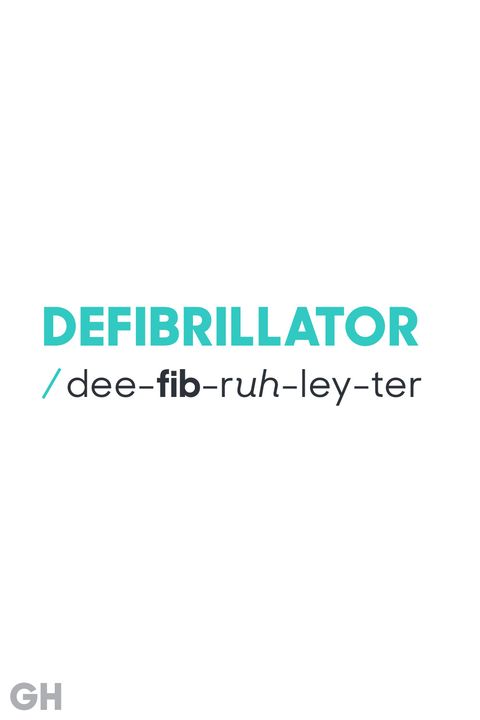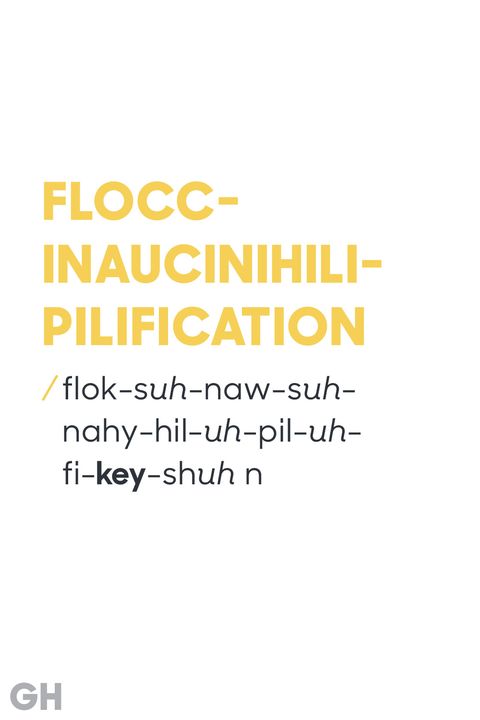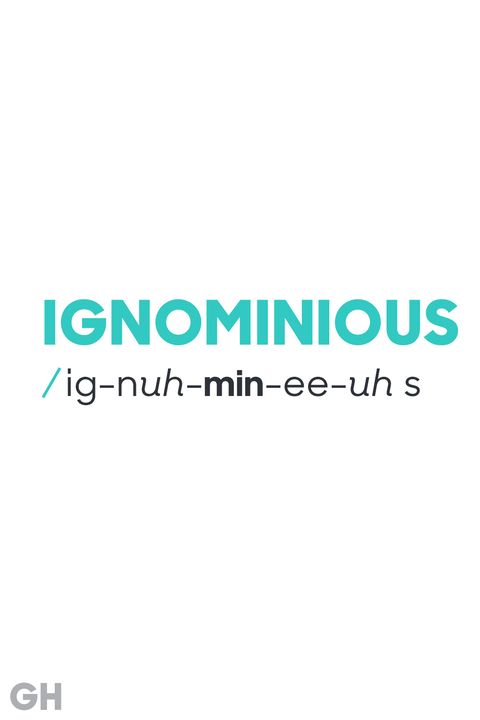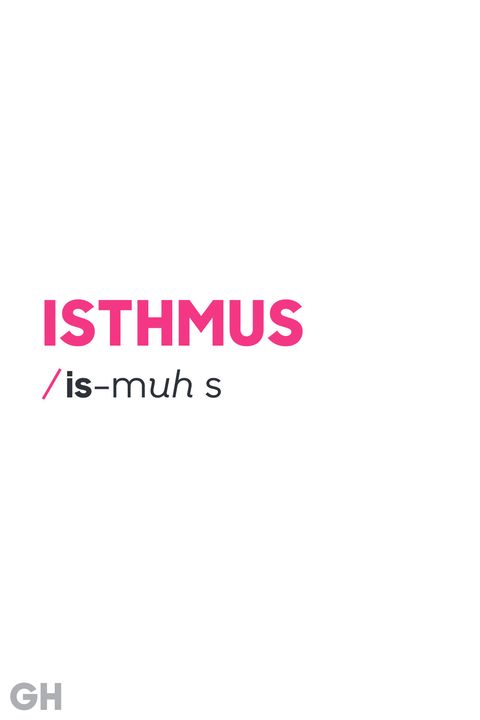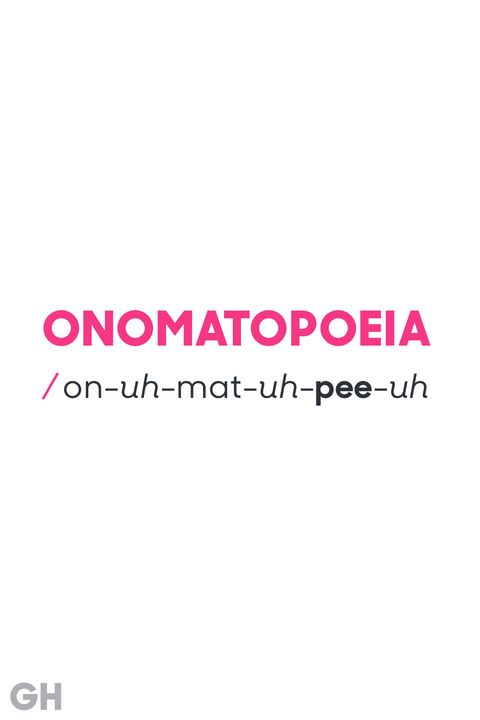September 27, 2019
Did you know that it’s not just people who don’t have English as their first language who are looking for explanations for all kinds of difficult English words? There are tens of thousands of native English speakers who are looking for the correct way to spell or pronounce complicated English words. If you are a non native English speaker, things tend to get a lot more complicated. And if you are also a student, you really have a problem. Misspelling certain words in your essays will get you penalized quite harshly by your professor, so you may even need to consider using proofreading services. There are many weird words in English and we will try to show you how to spell the most common 101 of them. We even explain some funny Russian words in English.
Are There Any Weird Words in the English Language?
Many people don’t know that there are plenty of difficult English words. You may have encountered a couple of them over time, but there are hundreds. There are words that are difficult to spell and there are even words that are difficult to pronounce. However, it’s easy to learn the difficult English words to pronounce. Spelling is a bit more difficult to learn. Let’s take a look at the most difficult words in English and their explanation.
List of Difficult English Words to Spell
In most cases, students are having a pretty difficult time spelling certain words. Don’t worry, it’s not just you! Tens of thousands of students have visited our list of the most complicated English words so far. This means that most of these people have run into trouble with at least some of the following English words:
- Abjure – solemnly renounce something
- Abnegation – the action of renouncing or rejecting something
- Bashful – reluctant to draw attention to oneself
- Beguile – to charm someone in a deceptive way
- Bereft – deprived of or lacking something
- Blandishment – a flattering statement or action used to convince someone to do something
- Cajole – persuade someone to do something by flattery
- Callous – having an insensitive disregard for others
- Camaraderie – mutual trust and friendship among people
- Candor – the quality of being open and honest
- Debacle – a sudden failure
- Debunk – expose the falseness of an idea or belief
- Defunct – no longer existing
- Demagogue – a political agitator
- Eclectic –deriving ideas from a broad range of sources
- Ebullient – cheerful and full of energy (one of the most difficult English words)
- Egregious – outstandingly bad
- Fallacious – based on a mistaken belief
- Fatuous – silly and pointless
- Fetter – a chain used to restrain a prisoner
- Garrulous – excessively talkative, especially on trivial matters
- Gourmand – a person who enjoys eating
- Grandiloquent – pompous or extravagant in language or style
- Idiosyncratic – relating to idiosyncrasy
- Impecunious – having little or no money
- Knell – the solemn sound of a bell at a funeral
- Laconic – using very few words
- Largesse – generosity in bestowing money or gifts upon others
- Legerdemain – skilful use of one’s hands when performing tricks
- Maelstrom – a powerful whirlpool in the sea or a river
- Maudlin – self-pityingly or tearfully sentimental
- Maverick – an unorthodox or independent-minded person
- Negligent – failing to take proper care over something
- Neophyte – a person who is new to a subject or activity
- Obdurate – stubbornly refusing to change one’s opinion
- Obfuscate – make obscure or unclear
- Obstreperous – noisy and difficult to control
- Palliate – make something less severe without removing the cause
- Paradigm – a typical example or pattern of something
- Quixotic – extremely idealistic
- Quandary – a state of perplexity or uncertainty over what to do
- Recalcitrant – having an obstinately uncooperative attitude
- Redoubtable – formidable, especially as an opponent
- Sanguine – optimistic or positive in a difficult situation
- Scurrilous – making or spreading scandalous claims about someone
- Toady – a person who behaves obsequiously to someone important
- Torpid – mentally or physically inactive
- Ubiquitous – present, appearing, or found everywhere
- Umbrage – offence or annoyance
- Upbraid – to find fault with someone
- Vicissitude – an unpleasant change of circumstances or fortune
- Vilify – speak or write about in an abusively disparaging manner
- Virtuoso – a person highly skilled in artistic pursuit
- Wanton – deliberate and unprovoked
- Winsome – attractive or appealing in a fresh, innocent way
- Yoke – the wooden crosspiece that is placed over the necks of two animals (part of the plough)
- Zephyr – a soft gentle breeze
- Wily – skilled at gaining an advantage
- Tirade – a long, angry speech of criticism
List of Difficult Words to Pronounce for Non Native English Speakers
- Rural – characteristic of the countryside rather than the town
- Otorhinolaryngologist – a specialist in the disorders of the ear or nose or throat (one of the most difficult English words to say)
- Colonel – a rank of officer in the army and in the US air force
- Penguin – a large flightless seabird of the southern hemisphere
- Sixth – constituting number six in a sequence
- Isthmus – a narrow strip of land with sea on either side
- Anemone – a plant of the buttercup family
- Squirrel – an agile tree-dwelling rodent with a bushy tail
- Choir – an organized group of singers
- Worcestershire – a former county in West-central England
List of Weird English Words
When it comes to the English dictionary, there are times when you won’t believe your eyes. There are hundreds of strange English words that almost nobody knows about. Truth be told, we never even heard about 80% of the following words:
- Bamboozled – to cheat or fool someone
- Bumfuzzle – to confuse someone
- Cattywampus – not lined up or not arranged correctly
- Discombobulate – to disconcert or confuse someone
- Flabbergast – to surprise someone greatly
- Foppish – a person concerned with his clothes in an excessive way.
- Gardyloo – a warning cry when somebody threw slops from the windows into the streets
- Jalopy – an old car in a dilapidated condition (just one of the weird words in the English dictionary)
- Lothario – a man who behaves irresponsibly in sexual relationships with women
- Taradiddle – a petty lie
- Tergiversate – to make conflicting or evasive statements
- Snickersnee – a large knife
- Collywobbles – stomach pain or queasiness
List of Funny Russian Words in English
- Pochemuchka – a child who asks many questions
- Perepodvypodvert – doing something in an overly complex or totally incomprehensible way
- Nedoperepil – somebody who drank more than they should have, but less than they could have
- Toska – sadness, melancholia, or lugubriousness
- Poshlost’ – vulgarity, banality, platitude, triteness, or triviality
- Kapel – small Christian place of worship
- Dacha – a country house or cottage in Russia
- Glazomer – the ability to measure without any instruments
List of Funny Old English Words
Of course, the dictionary contains a ton of funny English words. Many of these are old words that are rarely used nowadays. However, that doesn’t mean that you can’t use them in your essays. It’s always fun to see your teacher searching through the dictionary. So here are the most interesting old English words that are as funny as they get:
- Ultracrepidarian – giving opinions and advice on matters outside of one’s knowledge
- Philogrobolized – stupefied, or having a hangover
- Hum durgeon – an imaginary illness
- Quomodocunquize – that makes money in any possible way
- Zwodder – a drowsy, foolish frame of mind
- Groke – to look at somebody while they’re eating hoping they’ll give you some of their food
- Famelicose – pertaining to being hungry
- Bang-a-bonk – to sit lazily on a riverbank
- Crambo-clink – rime or riming
- Inisitijitty – a worthless, ridiculous-looking person (one of the most difficult words in English)
- Omperlodge – to disagree with or contradict someone
Why Does This List of Difficult Words to Pronounce in English Matter?
Many students have asked us why we bothered to make this list of 101 difficult English words. The truth is that we really enjoyed it. However, this list is of great help to people who are looking for ways to improve their vocabulary. Yes, many of these words may seem old-fashioned and obsolete. However, we guarantee you that your professor will greatly appreciate you using many of them. It shows that you are a well-read student and that you are not afraid to use uncommon language to make an impression. It also shows your professor that you are a master of the English vocabulary.
Another reason why you would want to take a look at our list of difficult English words to spell is to avoid any future errors. Your professor will swiftly penalize you for spelling errors in your academic papers. You can lose valuable points because of some improperly spelled words. Furthermore, you need to understand exactly what each word means and how it is used.
Do You Need to Learn These Words?
No, you don’t need to learn all these words. These are all the most complicated English words, but you can find plenty of synonyms for each one of them. So you can simply use a synonym instead of the words listed in our list. There are, however, times when you want to demonstrate your strong grasp of the English language. That’s when you may want to consider using words from this list. This is why we encourage you to bookmark this list of complicated English words. You can come back at any time. This list of difficult English words will always be free. However, we may update it to add more words in the future. We are all about helping students excel at school!
Take a break from writing.
Top academic experts are here for you.
do my paper
When speaking English you sometimes come across some words that make you think if you are actually pronouncing them correctly. Well, there are certainly a couple of words that pop up into my head right now. If you cannot think of any at the moment, here are a few words that are likely to have interrupted you in a conversation in the past. Which one of them is your favourite most difficult English word to pronounce?
7. Rural
This word could arguably be further down the list, but I wanted to give you a start with a word that makes everyone stop and say the word over and over again. Somehow you also always have the urge to show that you are convinced you are able to pronounce it. I don’t know why. Well, of course, you then you have to prove it, no question.
6. Sixth
In sixth, is the word “sixth.” Written it never seems as such a difficult word, but when your mouth gets to the word “sixth” your tongue just naturally refuses to perfectly pronounce this word. But don’t worry, nobody’s perfect.
5. Sesquipedalian
Originating from 17th century Latin and originally meaning ‘a foot and a half long’, this word literally stands for ‘long-winded’ words, such as Sesquipedalian. And one would think it would mean something really mysterious and fascinating. But no, just ‘long.’
4. Phenomenon
Some words are just a phenomenon when it comes to reading and writing. You get so tangled up with letters that you have to start over and say it again very slowly to not get confused. Phenonmenon is one of them. No, wait, ‘P-H-E-N-O-M-E-N-O-N’. There we go!
3. Onomatopoeia
Referring to words that are similar to sounds or noises, these words are often used for “boom” or “buzz.” Although the imitated words are usually very short, the word onomatopoeia is weirdly long and difficult to pronounce. Just looking at the word makes me stutter. But just like everything else, practice makes perfect.
2. Supercalifragilisticexpialidocious
For every Mary Poppins fan this word is easier to pronounce than the word ‘pronounce’ itself, especially with a lot more wit. The easiest way to practice this word is either by singing or by breaking it up into small parts. You will see, after a bit of practice you will be able to express something ‘extraordinarily good’ in a supercalifragilisticexpialidocious manner. Another reason to watch Mary Poppins again!
1. Worcestershire
Without any doubt this is one of the most tongue twisting single words out there. It will make you feel small and untalented, or it will make you laugh until you cry, one of them. Historically being a county of west central England, it is also a unique sauce for food and drink (yes, also drinks), sometimes also called ‘Worcester sauce’.
To give you a little hint on how to pronounce it, the first ‘R’ in the word is silent. It is still a difficult word, but if you are having difficulties with this one, you are definitely not alone, I am certain of that.
One of the most problematic aspects of documenting words from audio is deciphering words that may be mispronounced due to being difficult for foreigners and even English-speaking Americans. That’s one of the many reasons to hire translation services that can do the work for you. Here are 20 English words that commonly cause pronunciation problems.
20 Most Difficult Words to Pronounce in the English Language
1. Colonel
2. Worcestershire
3. Mischievous
4. Draught
5. Quinoa
6. Onomatopoeia
7. Scissors
8. Anemone
9. Isthmus
10. Otorhinolaryngologist
11. Squirrel
12. Ignominious
13. Successful
14. Sixth
15. Phenomenon
16. Rural
17. Specific
18. Synecdoche
19. Temperature
20. Often
1. Colonel — Derived from Middle French, this pronunciation is «ker-nul.» The reason it’s a strange word for foreigners is that it lacks an «r,» despite using that sound when spoken. The second «o» is silent, which adds to the confusion.
2. Worcestershire — Americans mispronounce this name since it uses its traditional British-English pronunciation, which is «woo-ster-sher» instead of wor-cest-er-shi-er.» The ending «shire» means «county» in Britain. So the Worcestershire sauce used as food seasoning is merely named after the region in which it originates. It may help to remember that after «wo» the «rce» part of the word is silent and «shire» is pronounced «sher,» like in New Hampshire.
3. Mischievous — While many Americans say «mis-CHEEV-ee-us,» the actual pronunciation is «MIS-chiv-us.» The confusion lies in the fact that it’s a three-syllable word but appears to have four syllables.
4. Draught — Travelers from outside the United States or the UK might say «drot,» but the correct pronunciation of this British word is «draft,» which is also what it means, as in cool air or alcoholic beverage from a keg.
5. Quinoa — This super food has gained popularity among health food consumers in recent years, even though it’s a grain from the ancient world. Some people might mispronounce it as «qwin-o-ah,» but this Spanish word has multiple pronunciations, such as «KEEN-wah,» «ken-WAH» or «KEN-on-ah.»
6. Onomatopoeia — Have you even ever heard of this word, which applies to words that imitate the sound they make? It’s actually a six-syllable word and is pronounced «on-o-mot-o-PEE-a.» An example of a term that would fit this description is «buzz.»
7. Scissors — While most Americans know how to pronounce this word as «sizz-ers,» people who are just learning English might say «skiss-ors.» They might think the «s» at the end makes it plural, although it’s a singular tool referred to as a pair of scissors.
8. Anemone — From the buttercup family, this wild, colorful plant may look hard to say for any person unfamiliar with gardening. It’s pronounced «ah-NEM-oh-nee.» Just ignore the «mone» ending, which looks like it should rhyme with «phone» but doesn’t.
9. Isthmus — If you study geography, you might recognize this two-syllable term as a reference to a tight strip of land between two seas. It helps if you forget about the «th,» which is silent, as the word is pronounced «is-muss.»
10. Otorhinolaryngologist – Many people can trip over this lengthy word that is used in the medical profession for an ear, nose and throat doctor. It’s understandably complex for anyone outside of the medical field, as it’s pronounced «oh-toh-rye-no-lar-ing-GOL-uh-jee.» A more convenient title for this medical position is «ENT.»
11. Squirrel — German speakers may have problems with this animal word since the «rl» sound is usually coming at the end of a syllable. They might say «skwörl,» when most Americans say «SKWIR-rel.»
12. Ignominious — Articulate speakers who show off vocabulary use this word to describe a person who is dishonorable.» It’s a five-syllable word that is pronounced «ig-ne-MIN-ee-us.»
13. Successful — Here’s one of the easiest words on this list for anyone to pronounce, although people unfamiliar with English might be confused by the double c and double “s” since the «cc» has a «k» sound. Yet just «c» alone can be an «s,» «k» or «ch» sound.
14. Sixth — Numbers are among the first things students of second languages learn to pronounce, but adding a «th» after «x» can be tricky for some people new to English.
15. Phenomenon — This singular form of «phenomena» means an amazing event and is pronounced «fi-NOM-uh-non.»
16. Rural — Residents of farms and ranches are familiar with this term, which is pronounced «roor-uhl,» whereas urban dwellers who don’t talk about less populated areas much might find it to be a tongue twister.
17. Specific — Here’s another easy word for most to decipher, but difficult for those who don’t understand that «s» and «c» can have the same, yet different sounds within the same word.
18. Synecdoche — This rare literary device is more read than spoken, making it unfamiliar to many, as it’s pronounced «se-NEK-de-kee.»
19. Temperature — For some people, «tem-per-uh-chur» is difficult to say quickly, as the «t» takes on a «ch» sound. Many people chop the four syllables down to three.
20. Often — Many Americans, more often than not, drop the «t» to say «OFF-uhn,» while others say «OFT-uhn.» But either pronunciation is acceptable in the United States.
Handpicked Related Content:
Difficult Words and Terms in Legal Transcription
Advertisement — Continue Reading Below
1
Anathema
There are too many As for this one to roll off the tongue easily, and if you’re wondering what it means, you’re not alone. Anathema — that is, someone or something intensely disliked — is in the top 1% of looked-up words on Merriam-Webster.
2
Anemone
Even Nemo couldn’t pronounce this word in the Pixar movie — and he lives in one! If you can get through the first two syllables, you’re in the clear.
Advertisement — Continue Reading Below
4
Antidisestablishmentarianism
For most people, it’s the longest word they know. For others, it’s a bona fide tongue twister at a whopping total 28 letters and 13 syllables. (Psst, it means being opposed to the withdrawal of state support from an established church.)
Advertisement — Continue Reading Below
5
Asterisk
Linguists know that pesky metathesis makes this typographical symbol hard to say. Metathesis? That’s when people accidentally rearrange sounds or syllables in a word, like a toddler saying spaghetti as «pasketti.» In this case, it’s the final S and the K that do a little switcheroo, coming out as «asteriks.»
6
Brewery
No, it’s not just the booze talking. Discussing beer-making bars while sober is hard enough thanks to that tricky middle syllable.
Advertisement — Continue Reading Below
7
Cavalry
Metathesis strikes again! It doesn’t help that many people also confuse cavalry (armed forces on horseback) with the place Calvary, as in the Bible.
8
Comfortable
It’s so, so easy to skip that «tuh» sound, but just because you’re relaxing doesn’t mean you should give up on enunciation.
Advertisement — Continue Reading Below
9
Defibrillator
Dissimilation is another linguistic phenomenon you can blame mispronunciations on. That’s when similar consonants or vowels in a word become less alike, e.g. defibrillator becoming «defibyulator.»
10
Deteriorate
The first R in deteriorate gets the same treatment. You could try to say it correctly, or just pick one of many, many synonyms instead: decay, decline, degenerate, devolve … and that’s just the Ds!
Advertisement — Continue Reading Below
11
Explicit
Take heart. Almost everyone sounds like they have a lisp when they pronounce explicit.
12
Exponentially
Sometimes exponentially get exponentially harder to say the more you try to say it.
Advertisement — Continue Reading Below
13
February
Here’s another case of dissimilation, except people mispronounce this month so often that many dictionaries accept it either way. According to Merriam-Webster, «The y heard from many speakers is not an intrusion but rather a common pronunciation of the vowel U after a consonant, as in January and annual.»
14
Floccinaucinihilipilification
At 29 letters, floccinaucinihilipilification has earned the unofficial title of the longest non-technical word in the English language. Don’t let its length fool you. It simply means the act or habit of estimating something as worthless.
Advertisement — Continue Reading Below
15
Ignominious
CNN anchor Jake Tapper recently used this word on air and quickly prompted a 4,695% surge in lookups on Merriam-Webster. A synonym for dishonorable or despicable, it’s perfect for talking about controversial politics — if you’re brave enough to say it, that is.
16
Isthmus
Those double Ss are absolutely killer. Thankfully, most people don’t live on narrow strips of land and can ignore the geographical term altogether.
Advertisement — Continue Reading Below
Advertisement — Continue Reading Below
19
Often
You may use this common word often enough, but if you’re saying it as «off-ten,» you’re technically in the wrong. Merriam-Webster prefers the T-less version since it better reflects the evolution from its Middle English roots.
20
Onomatopoeia
Buzz, hiss, splash, meow — those so-simple words all are perfect examples of onomatopoeia, which is the act of naming something similar to the sound associated with it. Good luck saying — and spelling — this doozy!
What words do you find hard to pronounce in English? In this video we look at 10 words that English learners find tricky and look at how we say them in British and American English.
Are there any words that you’re pronouncing wrongly in English? Let’s find out.
We’re going to look at ten words that are tricky, see how some English learners say them and see how Jay and I say them.
So in British and American English. Ready? First word…
Comfortables – ah, no ‘s’. Comfortable.
Comfortable.
Comfortable.
No, no, no. It’s comfortable. Comfortable. 3 syllables. We write it like it has 4 – comf-or-ta-ble, but the ‘or’ disappears.
Comfortable
Comfortable.
That’s the thing about English pronunciation. We often don’t say what we write. OK. Next one.
Months, months, months.
Months
Months.
Not bad. It’s hard to pronounce this word because it’s got the ‘th’ sound quickly followed by ‘s’. You have to pull your tongue back very fast. Months. Months. Be careful not to say month-es. It’s just one syllable. Months.
Now here’s a secret. If you say muns or munts, we’ll understand. We say that too when we’re speaking fast.
Muns.
Munts.
OK, next one.
Receep.
Receep.
Nope.
Recipe.
Nearly. It has three syllables but the stress is on the first syllable.
Recipe
Mmmm. This soup is delicious.
It was my mother’s recipe.
The next word looks similar.
Recept.
Receipt.
Recept.
No. We don’t pronounce the ‘p’. It’s silent.
Receipt
Receipt
A receipt is a document that shows you’ve paid for something. Let’s hear it in a sentence.
Yes?
I’d like to return this sweater.
Do you have the receipt?
No, I’m sorry. I lost it.
Did you pay by credit card?
No, I paid cash.
Then I’m sorry. I can’t help you.
But I just bought it this morning.
Next word.
Literature.
Literature.
Literature.
It’s hard. How many syllables does it have? Jay and I say it differently.
Literature.
Literature.
Did you hear the difference? In British English it just has three syllables and in American it has four.
Lit-e-ra-ture.
Lite-ra-ture.
Literature.
Literature.
There’s a great way to practise long words like this. It’s called backchaining. You start at the back of the word and work forward. ture-rature-literature. Try it. ture-rature-literature. Great. Next one. Let’s have something easier.
Busy.
Busy.
It’s nearly right but notice the vowel sound. It’s not ooo – and it’s not u like in bus. It’s /I/ like in bit.
Can we talk?
I’m a bit busy.
Busy.
Busy.
OK, next one.
Debt.
Debt.
No.
Debt.
Pretty close! A debt is money that you owe someone. You borrowed some money and now you’re in debt. But the letter b is silent. Listen.
Debt.
Debt.
Another word like that is doubt – when you’re not sure if something is true.
Yes. That has a silent ‘b’ too.
I doubt if you can say the next word.
Hierarchy.
Hierarchy.
Hierarchy.
No,that’s not right.
Hierarchy.
Hierarchy.
This word means a system where people are organized into different levels of importance. So like in a company with the boss at the top. Hierarchy.
Hi-er-ar-chy – it’s four syllables but sometimes we run the first two together so it’s almost three. Hier-ar-chy. Let’s back chain it. Say it with me. chy – archy – hierarchy. Great, next one. This one’s very common.
Aren’t.
Aren’t.
Aren’t.
No, all wrong. When you contract are and not, you have to make them one syllable. But Jay and I say this word differently. Listen.
Aren’t.
Aren’t.
My r is much softer and Jay’s is stronger.
Aren’t.
Aren’t.
Say it the American way!
It doesn’t matter which way you say it, but make sure it has just one syllable.
And sometimes we don’t pronounce the ‘t’.
Yeah. When we’re speaking casually we both put a stop on the t, so it ends abruptly. Aren’.
Aren’ – We aren’ finished yet.
That’s right. We aren’. Here’s the next word
Crisps. Crisps. Crisps.
Crisps.
Crisps.
These are crisps. The tricky thing here is the ‘sps’ at the end – sps. Try it. sps. sps.
Crisps
Crisps
But we don’t call these crisps in America. We call them potato chips. Say chips.
No chips are different. We have fish and chips.
They’re French fries.
OK, last word. This one’s very tricky.
Thoroughly. Thoroughly. Thoroughly.
Thoroughly. No, I don’t know.
Thoroughly. Je sais pa.
It’s very hard. It’s got a th sound and then an ^ vowel and then an r and an l sound.
Thoroughly.
Thoroughly.
Thoroughly.
Thoroughly.
Let’s back chain it. Say it with me. ly–oroughly-thoroughly. ly–oroughly-thoroughly. Could you say it?
And that’s it. We want to say a big thank you to our English learners: Remi, Fenando and Hugo.
They were such great sports.
Now let us know in the comments below what words you find hard to pronounce in English and perhaps we’ll make another video about them.
Or send us a video an we’ll see if you’re saying a word correctly.
See you all next week! Bye. Bye-bye.
Watch more videos on difficult words to pronounce:
Here’s one on ten more words that are hard to pronounce.
And here’s one on some English tongue twisters.
Pronunciation really matters, of course, but so does grammar and vocabulary.
What are Difficult Words?
Difficult words in English refer to terms that people find hard to understand, spell, or pronounce. How hard a word is usually depends on a person’s age, location, vocabulary, and knowledge of the English language.
Some of the hardest words in English are:
- Disparate
- Cajole
- Gregarious
- Ephemeral
- Ignominious
- Hegemony
- Quinoa
- Conscience
- Liaise
- Cupboard
Content creators should use difficult words carefully because they have the potential to change the meaning of the sentence.
They can also affect your readability. And, therefore, your ability to connect with your target audience. In this way, using too many difficult words or complicated sentences can also affect your ability to rank well in search engine results.
Remember: your goal is to write content that your audience can easily find and engage with. Understanding what your audience talks about and how they talk about it can help you write the best content for your target.
Most writers have a tough time using these words because they are either difficult to hear or say. Or, they might have deep meanings.
Hardest Words to Pronounce in the English Vocabulary
Once, a friend of mine spent almost an hour in the grocery store looking for a sauce. My friend’s wife asked him to buy Wuss-ter-sheer (Worcestershire) sauce.
Unfortunately, my poor friend could only find Wor-cess-ter-shayr sauce.
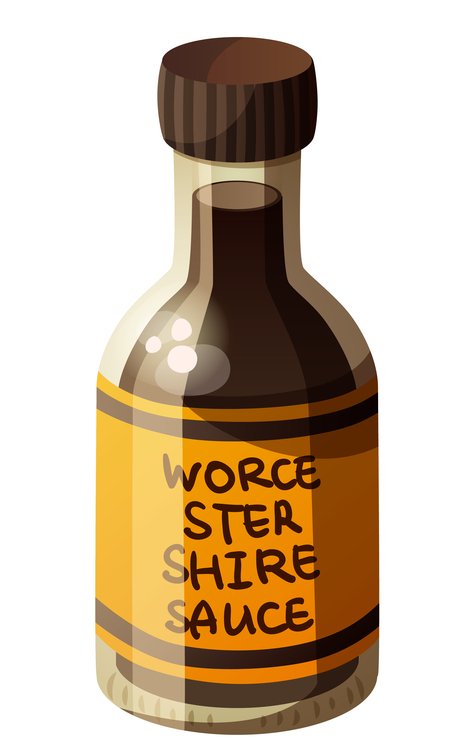
So, as you can see, some words are harder than others because they’re difficult to say.
In my example, the wife pronounced Worcestershire the right way. However, the husband read and say it differently, so it caused confusion.
Below are some examples of these commonly mispronounced words and the right way to say them.
Anemone
- Correct: aa-neh-mowniy
- Wrong: aa-neh-mown
Epitome
- Correct: ih-pit-uh-mee
- Wrong: epi-tohm
Boatswain
- Correct: boh-suhn
- Wrong: boht-sweyn
Debauch
- Correct: dih-bawch
- Wrong: de-botch
Colonel
- Correct: ker-nuhl
- Wrong: ko-lo-nel
Faux
- Correct: fow
- Wrong: fohx
Hegemony
- Correct: huh-jeh-muh-nee
- Wrong: hi-jeh-muh-nee
Genre
- Correct: zhahn-ruh
- Wrong: jen-re
Knell
- Correct: nel
- Wrong: kn-ehl
Mauve
- Correct: mahv
- Wrong: mohv
Ignominious
- Correct: ig-nuh-min-ee-uhs
- Wrong: ig-nuh-min-uhs
Onomatopoeia
- Correct: aa-nuh-maa-tuh-pee-uh
- Wrong: on-uh-mat-uh-pee-uh
Salmon
- Correct: sa-mən
- Wrong: sal-mən
Cupboard
- Correct: kuh-brd
- Wrong: kap-bord
Posthumous
- Correct: paas-chuh-muhs
- Wrong: pos-chuh-muhs
Quinoa
- Correct: keen-wah
- Wrong: key-no-ah

Segue
- Correct: seh-gwei
- Wrong: se-ge
Niche
- Correct: neesh
- Wrong: nitch
Liaison
- Correct: lee-ei-zaan
- Wrong: lie-a-zon
All native English speakers might not use the same difficult words. Note that most words can be used differently in depending on the context, region, and dialect.
In addition, some of these words can have a variety of meanings within one dialect.
For instance, where Americans use the word “incomprehensible,”Australians might use “confusing.”Swedes might use “ugly,” while the British could use “rude.”
People in some English-speaking areas might have difficulty with one or two of these words, while others have none.
What Makes a Word Difficult?
What makes difficult words difficult is the fact that they are hard to write, say, or understand.
You’ve probably found yourself repeating a particular word several times in your writing before. Or, you may have rearranged the way you use a specific word to make sure you are using or saying it correctly.
Learning to write using difficult words is no easy feat. Even with a dictionary around, there are still so many words that are difficult to say and spell.
When using these words, always pay attention to what you’re saying and how you’re saying it.
Read More: What Are Some Tone Words?
Most Difficult Words in the English Vocabulary
Regardless of how well-versed you are in the English language, some words will still make you scramble for a dictionary. Here are some of them and their corresponding definitions.
Disparate
- Things that are essentially different there’s no basis for comparison.
Gregarious
- Sociable; one who likes company.
Cajole
- To persuade someone with gentle coaxing or flattery.
Acumen
- The ability to make sound and quick decisions.
Ephemeral
- Lasting for a very short time.
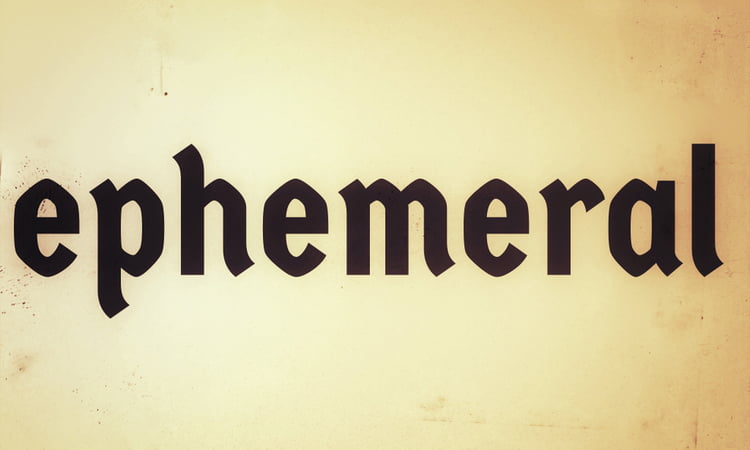
Florid
- Tinged with red; elaborate or intricate.
Beguile
- To charm someone, often in a deceptive manner.
Idyllic
- Picturesque in natural simplicity.
Juxtaposition
- Placing two or more objects side by side to compare and contrast.
Ostentatious
- Attracting attention by means of pretentious display, gaudiness, or obviousness.
Hiatus
- A brief pause or interruption in time or continuity.
Laconic
- Using minimal words.
Munificent
- Extremely generous or giving.
Nefarious
- Wicked or impious.
Quotidian
- Occurring daily; everyday.
Proclivity
- An inclination toward something; a tendency to do something regularly.
Sanctimonious
- A show of being morally superior to others.
Ruminate
- To think deeply about something.
Travesty
- A debased, distorted, or grossly inferior imitation; a false, absurd, or distorted representation of something.
Ubiquitous
- Present, appearing, or found everywhere; constantly encountered.
Most Commonly Misspelled Words in the English Vocabulary
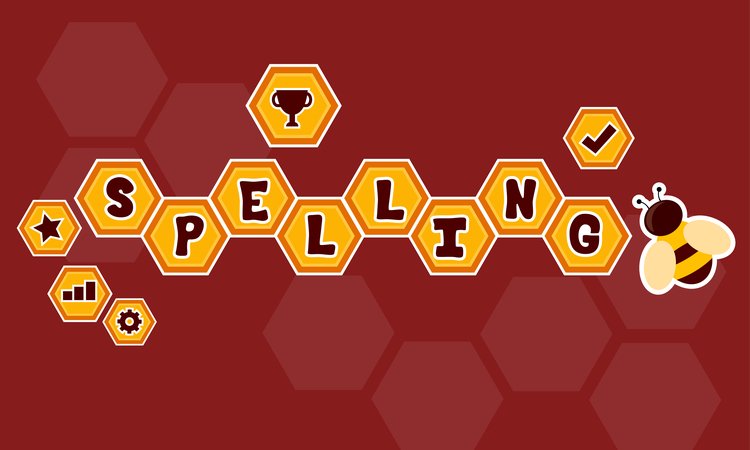
We often misspell words because we tend to spell them based on how they sound when we pronounce them. Usually, words pronounced with silent letters or those that have repeating letters are the most difficult to spell.
How often do you misspell “Mississippi,”“accommodate,” or “committee?”
Correct spelling is crucial, particularly if you are a writer. One way to fix your spelling issues is by memorizing words you find hard to spell and using them as often as you can.
Or, you can use writing editors with spell checkers like INK or Grammarly. With that said, below are some of the most commonly misspelled words in the English language.
- Apparent
- Drunkenness
- Dumbbell
- Amateur
- Conscience
- Exaggerate
- Foreseeable
- Gauge
- Harassment
- Irresistible
- Judgment
- Knowledge
- Liaise
- Millennium
- Noticeable
- Occurrence
- Possession
- Questionnaire
- Referred
- Vacuum
Things to Remember Before Using Difficult Words
There are some words that are more appropriate in daily conversation. There are others that are more appropriate for writing.
There’s no fixed rule. However, this is a useful guideline to demonstrate your command of the English language.
We’ve all encountered difficult words, and we want to avoid them as much as possible.
In order to make your readers interested in what you’re trying to convey, you need to provide them with helpful and important information. To accomplish this, you have to choose your words carefully.
Words that are considered difficult words are very subjective. But, if you can use them in a way that is agreeable to you, then use those words in your writing.
Once you are certain that you’ve used your words appropriately, you can move on to writing for a specific target audience. Your goals and objectives will naturally influence your choice of words.
Also, you should consider cultural differences when choosing your words.
English is one of the most commonly used languages in the world. However, it doesn’t mean that it’s used in the same way as other languages.
So, if you’re planning to use difficult words in your writing, try to use them sparingly. This will help you improve your writing skills.
Sources:Lexico Powered by Oxford Americal College Dictionary / Merriam-Webster Dictionary / HowToPronounce Pronunciation Dictionary
Read More: How To Use Vocabulary To Boost Your SEO
One of the biggest challenges facing people who are trying to learn English as a second language is the thought that, there are so many hard English words to pronounce!
What makes a word hard to pronounce? Often times the
difficult words to pronounce for non-native English speakers are those that are spelled completely different from how they are pronounced.
Not all English words are pronounced phonetically. When a word is pronounced phonetically, it is pronounced how it is spelled. Take the word “know”, if it was pronounced phonetically, the “k” would be spoken. However, the “k” is not spoken and this makes “know” one of the English
language’s tricky pronunciation words.
Take a look at the
English vocabulary words below. These are hard words for kids to say, even if they are native English speakers, and that can trip up adults as well. So don’t be ashamed to look them up and practice the correct way to pronounce them.
1. Accede
How is it pronounced?
“ak-SEED”, emphasis on the second syllable
What does it mean?
To accede means to give your consent or approval to someone else’s actions. It can also mean that you agree with the opinions of a group.
2. Alias
How is it pronounced?
“AY-lee-iss”, emphasis on the first syllable
What does it mean?
An alias is an assumed name or identity.
3. Anathema
How is it pronounced?
“un-NATH-uh-muh”, emphasis on the second syllable
What does it mean?
This means that you dislike something or someone intensely
4. Anemone
How is it pronounced?
“uh-NEH-muh-nee”, emphasis on the second syllable
What does it mean?
Properly called a “sea anemone”, this is a marine animal that lives on reefs and ocean floors. It’s a sedentary animal that attaches itself to a particular area and doesn’t move, that many people think looks like a flower.
There is also a type of flowering land plants that are called anemones.
5. Antarctic
How is it pronounced?
“ant-AHRK-tik”
What does it mean?
The Antarctic is simply the South Pole.
6. Brewery
How is it pronounced?
“BROO-uh-ree”, emphasis on the first syllable.
What does it mean?
Why is it that words that have something to do with drinking are such hard words to say when drunk? This three syllable word is used for bars specializing in beer. They often brew their own beers.
7. Camaraderie
How is it pronounced?
“kah-muh-RAH-duh-ree”, emphasis on the third syllable
What does it mean?
This is the feeling of warmth and familiarity you get when around a group of trusted friends.
8. Cavalry
How is it pronounced?
“KAV-uhl-ree”, emphasis on the first syllable.
What does it mean?
Traditionally, the cavalry were soldiers on horseback. Now, cavalry is usually used to mean someone or something who offers help when you really need it.
9. Choir
How is it pronounced?
“kwah-yuhr”
What does it mean?
A choir is a group of singers. Traditionally, choirs sang religious songs during church services.
10. Colonel
How is it pronounced?
“ker-nul”
What does it mean?
A military officer.
11. Comfortable
How is it pronounced?
“KUHM-fer-tuh-buh”, with emphasis on the first syllable
What does it mean?
If you are comfortable, you are relaxed and at ease.
12. Defibrillator
How is it pronounced?
“dee-FIB-ruh-ley-ter”, emphasis on the second syllable
What does it mean?
If you watch a lot of medical TV shows, you might have seen this. It’s that device, with two paddles attached to wires that are held to someone’s chest to deliver a shock that is supposed to help restart your heart.
13. Deteriorate
How is it pronounced?
“dih-TEER-ee-uh-reyt”
What does it mean?
When someone deteriorates their condition grows worse. This can also be used to talk about a situation you find yourself in. Basically, things are getting bad.
14. Draught
How is it pronounced?
“draft”
What does it mean?
An alcoholic beverage, usually traditional kept in a keg. Like draught beer.
15. Epitome
How is it pronounced?
“ih-PIT-uh-mee”, emphasis on the second syllable
What does it mean?
Someone or something that is the perfect example of a quality or of a type.
16. Espouse
How is it pronounced?
“ih-SPOWZ”, emphasis on the second syllable
What does it mean?
When you follow or support a particular idea. Usually you are vocal and proud about your support.
17. Espresso
How is it pronounced?
“eh-SPRES-oh”
What does it mean?
When you order an “espresso” you are asking for a type of strong Italian coffee.
18. Explicit
How is it pronounced?
“ik-SLIS-it”, with emphasis on the second syllable
What does it mean?
This is not one of those hard words to say with a lisp, as you are supposed to sound like your lisping slightly. When you are explicit about something, you state it clearly and in complete detail.
19. Exponentially
How is it pronounced?
“ek-spoh-NEN-shuh-lee”, emphasis on the third syllable
What does it mean?
This is an adverb that means something is increasing rapidly.
20. Ignominious
How is it pronounced?
“ig-nuh-MIN-ee-uhs”, emphasis on the third syllable
What does it mean?
This is usually used as an adverb to describe and action that is considered disgraceful or dishonorable.
21. Isthmus
How is it pronounced?
“is-muss”
What does it mean?
This is the name of a geographical feature. An isthmus is a narrow piece of land that is located between two different seas.
22. Know
How is it pronounced?
“noh”
What does it mean?
This is a tricky word because it is an example of a word with what we call a silent “k”. To know how to pronounce “know”, you need to know it has a silent k.
23. Knell
How is it pronounced?
“nel”
What does it mean?
The rule about a silent “k” makes for tricky pronunciation words. Here’s another word where the “k” is silent and so is the second “l”. This word is used to refer to the ringing of a bell. Usually, this is a big church bell that makes a slow, loud noise.
24. Library
How is it pronounced?
“LAHY-brer-ee”, emphasis in the first syllable
What does it mean?
This is a building which contains a collection of books and other published materials.
25. Mauve
How is it pronounced?
“mohv”
What does it mean?
Mauve is a color. It is a shade of pale purple.
26. Mischievous
How is it pronounced?
“MISS-chiv-us”, with the emphasis on the first syllable.
What does it mean?
This is an adjective that basically means behaving in a way that causes “trouble”. A mischievous action is not bad or evil. It is usually playful and with no malice behind it.
27. Nadir
How is it pronounced?
“NAY-deer”, emphasis on the first syllable
What does it mean?
This means reaching the lowest point.
28. Neophyte
How is it pronounced?
“NEE-uh-fahyt”
What does it mean?
This word is used to refer to a beginner, someone who is new to a task, job, or a group.
29. Often
How is it pronounced?
“AW-fuhn”, emphasis in the first syllable
What does it mean?
If you do something “often” you do it a lot or repeatedly.
30. Onamatopeia
How is it pronounced?
“on-o-mot-o-PEE-a”, with the emphasis on the fifth syllable.
What does it mean?
This is a term for a word that refers to a sound. These words actually imitate the sound they are supposed to refer to, such as “roar” or “buzz”. It has six syllables which make it quite
a mouthful to pronounce, even for native speakers of English.
31. Otorhinolaryngologist
How is it pronounced?
“oh-toh-rye-no-lar-ing-GOL-uh-jee”, emphasis on the seventh syllable.
What does it mean?
This nine syllable word is the formal title of a specific type of medical doctor. This is a doctor who specializes in treating eye, nose, and ear conditions. The simpler way to refer to these types of doctors is as an ENT doctors.
32. Panacea
How is it pronounced?
“pan-uh-SEE-uh”, emphasis on the third syllable
What does it mean?
This refers to a remedy for illness.
33. Phlegmatic
How is it pronounced?
“fleg-MAT-ik”, emphasis on the second syllable
What does it mean?
This is someone who is easy-going. No matter what happens around them they remain calm and collected.
34. Penguin
How is it pronounced?
“peng-gwin”
What does it mean?
A penguin is a type of flightless sea bird. They are typically black and white.
35. Phenomenon
How is it pronounced?
“fi-NOM-uh-non”, emphasis on the second syllable
What does it mean?
A phenomenon is an event that is observable,
36. Puerile
How is it pronounced?
“PYOO-er-il”, emphasis on the first syllable
What does it mean?
When you think something is “purile” you believe it is foolish or childish.
37. Quinoa
How is it pronounced?
Either “KEEN-wah,” “ken-WAG, or “KEN-o-ah”
What does it mean?
Quinoa is an ancient grain that has grown in popularity in the recent decade because of its nutritional values. It’s considered a “superfood” and is actually a Spanish word.
38. Quixotic
How is it pronounced?
“kwik-SOT-ik”
What does it mean?
This is someone who is very idealistic, to the point that their ideas are impractical or unrealistic.
39. Rural
How is it pronounced?
“roor-uhl”
What does it mean?
When you say a place is “rural” you mean that it is located in the countryside.
40. Sanguine
How is it pronounced?
“SANG-gwin”, emphasis on the first syllable
What does it mean?
Someone who is sanguine is cheerful and hopeful, even if they are facing a bad situation.
41. Scissors
How is it pronounced?
“sizzors”
What does it mean?
These are two bladed cutting instruments that you use to cut into thin materials such as paper or cloth.
42. Sixth
How is it pronounced?
“siksth”
What does it mean?
When you say something is the “sixth”, your saying it is item number six in a sequence.
43. Specific
How is it pronounced?
“spi-SIF-ik”, emphasis on the second syllable
What does it mean?
This means that something is clearly defined.
44. Squirrel
How is it pronounced?
“skwi-rel”
What does it mean?
A squirrel is a bushy tailed rodent that lives in trees.
45. Staid
How is it pronounced?
“steyd”
What does it mean?
Someone who is staid is sedate and calm.
46. Successful
How is it pronounced?
“SUKH-ses-fuhl”, emphasis on the first syllable
What does it mean?
If you are successful in pronouncing this word, then you pronounced it correctly. When you are successful in something, you accomplished your aim or your purpose.
47. Surfeit
How is it pronounced?
“SUR-fit”, emphasis in the first syllable
What does it mean?
A surfeit is an extra amount of something.
48. Temperature
How is it pronounced?
“tem-PER-uh-cher”, emphasis on the second syllable
What does it mean?
This is a scientific measurement meant to gague the degree of heat that is present in an object or a substance.
49. Truculent
How is it pronounced?
“TRUHK-yeh-luhnt”, emphasis on the first syllable
What does it mean?
Someone who is truculent is quick tempered. They get into arguments or fights easily.
50. Worcestershire
How is it pronounced?
“WOOster-sher”
What does it mean?
A special sauce that originated in Worcester, a town in England. The town name is also pronounced the as “WOOster-sher”.
51. Zephyr
How is it pronounced?
“ZEF-er”, emphasis on the first syllable
What does it mean?
This refers to a breeze that is soft and mild.
Conclusion
If you want to learn how to correctly pronounce tricky vocabulary words, the answer is: Practice, practice, practice.
It’s also a really good idea to get a native language speaker as an English tutor who can listen to you say these words and help you with your pronunciation. You can also practice using these hard to pronounce words in conversation which will really help you learn them.



